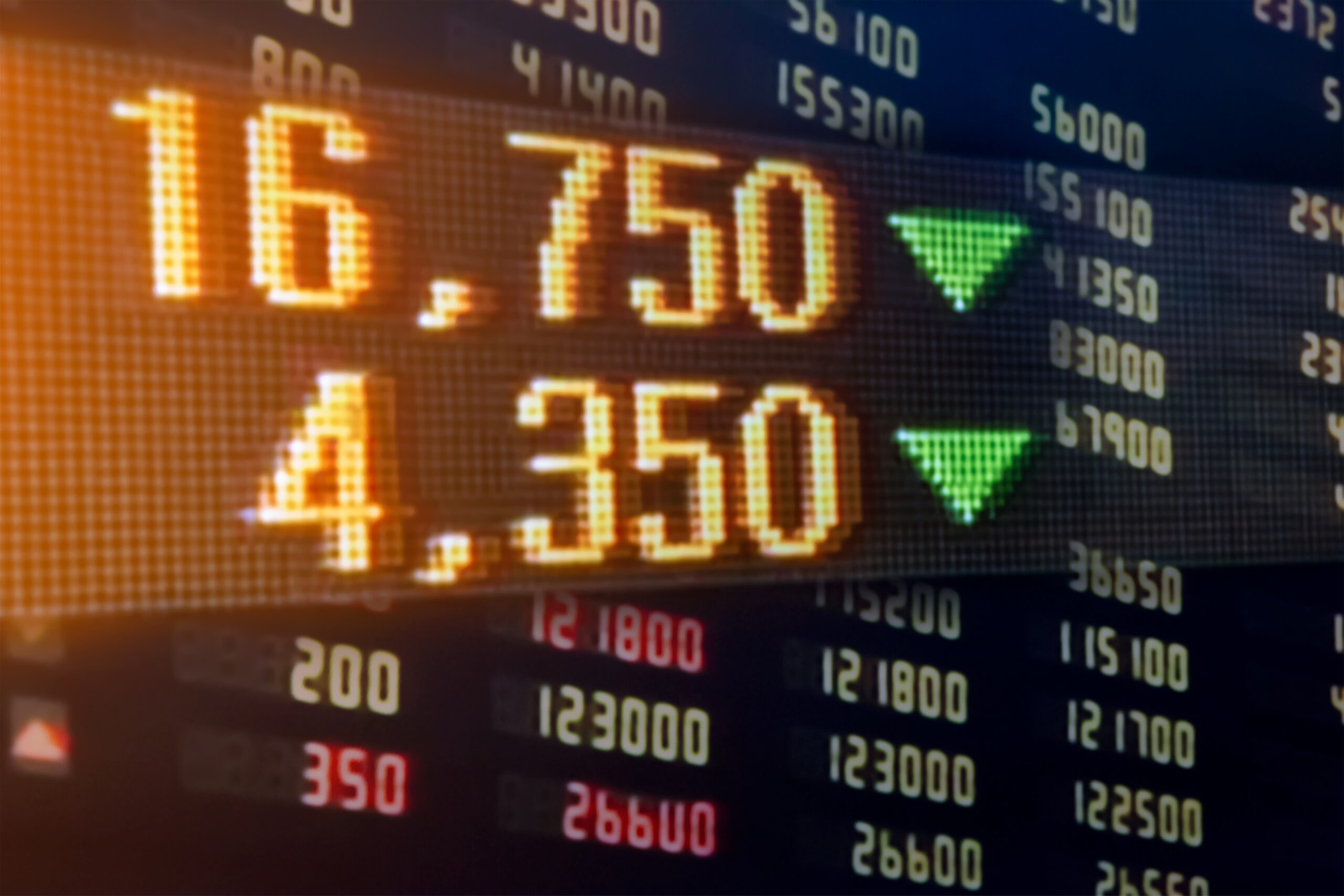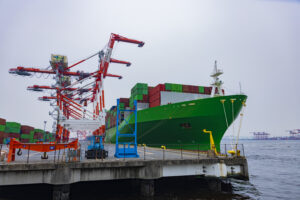The Tokyo Stock Exchange (TSE) stands as one of the most significant financial hubs in Asia and the world, playing a pivotal role in global markets. As Japan’s premier stock exchange, it has witnessed a series of transformative trends and challenges that reflect both domestic and international economic landscapes. This article delves into the current state of the TSE, examining key trends, the impact of global events, investor sentiment, and sector performance, while also considering the implications of technology and regulatory changes. By analyzing historical data and looking forward, we aim to provide insights into the dynamic and evolving landscape of the Tokyo Stock Exchange.
Understanding the Tokyo Stock Exchange: A Brief Overview
The Tokyo Stock Exchange, founded in 1878, is Japan’s largest stock exchange and one of the most prominent in the world. It operates under a unique system of trading, where numerous companies across various sectors are listed, contributing to Japan’s economy. With its headquarters in Tokyo’s Nihonbashi district, the TSE is integral for domestic and international investors seeking exposure to Japanese stocks. The exchange operates on a hybrid model that incorporates both traditional trading floors and modern electronic trading systems, enhancing its efficiency and accessibility.
Over the years, the TSE has undergone several reforms, particularly in response to economic challenges and technological advancements. The merger with the Osaka Securities Exchange in 2013 highlighted its commitment to consolidating trading platforms and streamlining operations. Today, the TSE boasts an impressive market capitalization, housing around 3,700 companies, including notable global players like Toyota, Sony, and SoftBank. Its diverse listings reflect a broad spectrum of industries, making it a crucial barometer for Japan’s economic health.
The TSE is also categorized into different sections, such as the First Section for large-cap companies, the Second Section for mid-cap firms, and the Mothers market for emerging startups. This segmentation allows investors to navigate the exchange more effectively, targeting their investment strategies based on market capitalization and growth prospects. The exchange’s robust regulatory framework, governed by the Financial Services Agency, ensures transparency and integrity in trading practices, fostering investor confidence.
In recent years, the TSE has adapted to global shifts in trading practices, incorporating environmental, social, and governance (ESG) criteria into its operations. This focus on sustainable investing has attracted a new wave of investors, aligning with global trends towards responsible investment. The introduction of indices that track ESG performance reflects the exchange’s commitment to sustainability and responsible corporate governance.
While the TSE has shown resilience, it faces challenges from emerging markets and shifts in global investment trends. Its ability to innovate and adapt to these changes will be crucial for maintaining its position in the global financial landscape. Overall, the TSE’s rich history, robust infrastructure, and strategic reforms underpin its significance as a leading stock exchange.
Key Trends Shaping the Tokyo Stock Exchange Today
The Tokyo Stock Exchange is currently experiencing a series of trends that are reshaping its operational landscape. One significant trend is the increasing emphasis on digital transformation across trading practices. The rise of fintech solutions and algorithmic trading has changed the way investors engage with the market, leading to faster execution times and more efficient trading strategies. As a result, traditional brokerage firms are adapting by enhancing their technological capabilities to stay competitive.
Another key trend is the growing interest in sustainable and socially responsible investing. Investors are now more inclined to consider environmental, social, and governance factors when making investment decisions. This shift has led to the emergence of ESG-focused funds and indices, which track companies that meet specific sustainability criteria. The TSE’s response to this trend has been proactive, with the introduction of new indices aimed at promoting transparency and responsible corporate behavior.
Moreover, the impact of demographic changes in Japan cannot be overlooked. With an aging population and a declining birth rate, the investment landscape is evolving as older generations pass down wealth to younger investors. This generational shift is prompting a reconsideration of investment strategies, with younger investors showing a preference for technology-driven platforms and global diversification over traditional investment approaches.
The influence of international markets is also becoming more pronounced. As global economic interdependence deepens, the movements of foreign markets significantly impact the TSE. For instance, fluctuations in U.S. markets often lead to corresponding reactions in Tokyo, demonstrating the interconnectedness of global finance. Investors are increasingly paying attention to global economic indicators, prompting them to reassess their strategies in response to international developments.
Exchange-traded funds (ETFs) have gained popularity in recent years, providing investors with an efficient way to gain exposure to a diversified portfolio of stocks with lower fees. The TSE has seen a surge in ETF listings, leading to greater liquidity in the market. This trend is indicative of a broader shift towards passive investment strategies, which have been favored for their cost-effectiveness and simplicity in comparison to traditional active management.
Finally, the ongoing impact of the COVID-19 pandemic continues to shape market behavior. While recovery efforts are underway, uncertainties regarding future waves of infections and policy responses remain. Investors are closely monitoring the government’s fiscal measures and the Bank of Japan’s monetary policy actions, as these will play a crucial role in guiding the TSE’s trajectory in the near future.
The Impact of Global Events on Japanese Markets
Global events have a profound impact on the Tokyo Stock Exchange and the broader Japanese economy. For instance, geopolitical tensions, such as trade disputes between major economies, can create volatility in financial markets. The U.S.-China trade war, for example, prompted concerns over supply chain disruptions and potential economic slowdowns, influencing investor sentiment in Japan and leading to fluctuations in stock prices.
The pandemic has also had far-reaching consequences, significantly altering economic activity and market behavior. During the initial stages of the COVID-19 outbreak, the TSE, like many global exchanges, experienced sharp declines as uncertainty gripped investors. However, as governments worldwide implemented stimulus measures and vaccines began rolling out, the market rebounded, highlighting its resilience in the face of adversity.
Natural disasters, prevalent in Japan, also pose risks to the TSE. Events such as earthquakes and tsunamis can disrupt not only local industries but also global supply chains, affecting investor confidence. The 2011 Tōhoku earthquake and tsunami, for instance, had a lasting impact on Japan’s economy and led to significant market volatility. Investors remain acutely aware of these risks, incorporating disaster preparedness into their investment strategies.
Additionally, global financial markets are increasingly interconnected, with capital flows moving swiftly across borders. Changes in interest rates in the U.S. or shifts in European markets can trigger responses in Japan, as investors adjust their portfolios in search of better returns. The TSE’s performance is often viewed as a reflection of global economic conditions, making it essential for investors to monitor international developments closely.
Climate change has also emerged as a critical global issue influencing market dynamics. Investors are now recognizing the potential risks associated with climate-related events, prompting a shift towards sustainable investment practices. As countries implement stricter environmental regulations, companies listed on the TSE are under pressure to adopt more sustainable practices, influencing their performance and attractiveness to investors.
Overall, the TSE is not insulated from global events; it is inherently linked to the international economic landscape. Understanding these dynamics is crucial for investors, as they navigate the complexities of an interconnected world and adapt their strategies accordingly.
Investors’ Sentiment: Bullish or Bearish on Tokyo Stocks?
Investor sentiment plays a crucial role in determining market trends on the Tokyo Stock Exchange. Over the past few years, sentiment has fluctuated widely, influenced by various economic, geopolitical, and social factors. Currently, there is a prevailing sense of cautious optimism among investors, as they react to positive signs of economic recovery post-pandemic, while remaining wary of potential headwinds.
The Bank of Japan’s accommodative monetary policy has significantly influenced investor sentiment. Low-interest rates and liquidity injections have created a favorable environment for equities, encouraging many investors to take a bullish stance. This sentiment is reflected in rising stock prices and increased trading volumes, signaling confidence in the recovery of the Japanese economy.
However, concerns over inflation and rising global interest rates have led to a more nuanced view among investors. Many are now weighing the potential impact of these factors on corporate profitability and economic growth. Some analysts predict a more cautious approach as investors begin to reassess their positions, leading to a potential correction in the market.
Moreover, geopolitical tensions and uncertainties surrounding global supply chains remain prominent concerns for investors. The conflict in Ukraine and ongoing trade ramifications from the U.S.-China relationship have contributed to a degree of unease. As a result, cautious investors may adopt a more defensive strategy, focusing on sectors that are likely to weather economic fluctuations more effectively.
Retail investors have also become increasingly influential in shaping market sentiment in Japan. The rise of online trading platforms has empowered individual investors, leading to greater engagement with the stock market. Their collective actions can create short-term volatility, as seen during market rallies driven by retail enthusiasm. This phenomenon adds another layer of complexity to investor sentiment analysis.
In summary, while there are bullish indicators regarding the recovery of the Tokyo Stock Exchange, underlying concerns related to inflation, geopolitical tensions, and retail investor behavior suggest a more cautious outlook. Investors must remain vigilant, monitoring both domestic and international developments to navigate the evolving sentiment landscape successfully.
Sector Performance: Which Industries Are Leading?
Analyzing sector performance on the Tokyo Stock Exchange reveals a diverse landscape, with certain industries demonstrating remarkable resilience and growth. The technology sector, in particular, has emerged as a clear leader, driven by increased demand for digital solutions and innovation. Companies involved in software development, cloud computing, and semiconductor production have consistently outperformed, as businesses and consumers continue to embrace digital transformation.
Another strong performer is the healthcare sector, which has garnered attention due to the ongoing global focus on health and wellness. Pharmaceutical companies and biotechnology firms are at the forefront, benefiting from the heightened demand for innovative solutions, particularly in vaccine development and medical technologies. The TSE’s healthcare sector has become an attractive destination for investors seeking stability and growth potential.
The automotive industry, a cornerstone of the Japanese economy, has faced challenges amid the global shift towards electric vehicles (EVs). However, traditional automotive manufacturers are adapting by investing heavily in EV technology and sustainability initiatives. This strategic pivot is garnering investor interest, as companies position themselves to capture future growth opportunities in the electrification of transportation.
On the other hand, the tourism and hospitality sector has struggled in the aftermath of the pandemic, with international travel restrictions significantly impacting revenue. While there are signs of recovery as restrictions ease, the sector remains cautious, and investor sentiment reflects this uncertainty. Companies in this space are focusing on diversification and innovation to navigate the ongoing challenges of a transformed travel landscape.
The financial sector, particularly banking and insurance, has shown resilience, supported by a favorable interest-rate environment. As Japan’s economy gradually stabilizes, financial institutions are positioned to benefit from increased lending and improved profitability. Investors are keeping a close watch on regulatory developments and economic indicators that could impact this sector’s performance.
In conclusion, while the technology and healthcare sectors are leading the charge on the Tokyo Stock Exchange, challenges remain for traditional industries like automotive and tourism. Investors must remain agile, adapting their strategies to capitalize on sector-specific trends while being mindful of potential headwinds that could impact performance.
The Role of Technology in Modern Trading Practices
The integration of technology into trading practices has significantly transformed the Tokyo Stock Exchange, enhancing efficiency, accessibility, and investor engagement. With the rise of electronic trading platforms, the speed of transactions has accelerated, allowing investors to execute trades in real-time. This technological shift has made it easier for both institutional and retail investors to access the market, ultimately increasing liquidity.
Algorithmic trading has also gained prominence, enabling traders to leverage sophisticated algorithms to analyze market data and make informed decisions. These automated systems can execute trades at high speeds, capitalizing on minute price fluctuations. As a result, algorithmic trading has become a critical component of modern trading strategies, driving competition and shaping market dynamics on the TSE.
Moreover, the rise of fintech solutions has revolutionized the investment landscape, providing users with innovative tools for portfolio management and analysis. Robo-advisors and mobile trading applications have democratized investing, allowing individuals to manage their investments more effectively. This trend has been particularly pronounced among younger investors, who seek user-friendly platforms that offer transparency and convenience.
The impact of big data and artificial intelligence (AI) cannot be overstated. Investors now have access to vast amounts of data that can be analyzed to uncover trends and correlations that were previously difficult to detect. AI-driven analytics tools enable traders to identify potential investment opportunities and risks with greater accuracy, resulting in more informed decision-making processes.
Additionally, the ongoing development of blockchain technology holds promise for the future of trading and settlement processes. By enhancing transparency and reducing the risk of fraud, blockchain has the potential to streamline operations on the TSE. The adoption of distributed ledger technology could lead to more efficient and secure transactions, which may attract further investment in the Japanese market.
In summary, technology has become an indispensable part of trading on the Tokyo Stock Exchange. As innovations continue to reshape the landscape, investors must adapt their strategies to leverage these advancements and stay competitive in an increasingly digital environment.
Foreign Investment Trends: Opportunities and Challenges
Foreign investment in the Tokyo Stock Exchange has been a significant driver of market dynamics, bringing both opportunities and challenges. Over the past few years, the TSE has seen increased interest from foreign investors seeking exposure to Japan’s diverse economy. This influx of capital has contributed to heightened market liquidity and has positioned Japan as an attractive investment destination.
One of the primary motivations for foreign investment in Japan is the country’s stable economic environment, characterized by low inflation and a strong regulatory framework. Furthermore, Japan’s commitment to corporate governance and transparency has enhanced its appeal to international investors. As a result, many global funds have increased their allocations to Japanese equities, fueling demand for TSE-listed stocks.
However, foreign investors also face challenges when navigating the Tokyo market. Currency fluctuations can impact returns, as changes in the value of the yen relative to other currencies may affect the profitability of foreign investments. Additionally, cultural differences and varying business practices may pose obstacles for foreign investors seeking to effectively engage with Japanese companies.
The ongoing shift towards sustainable investing has also impacted foreign investment trends. Investors are increasingly focusing on ESG criteria when assessing potential investments, which has led to a greater demand for Japanese companies that prioritize sustainability and responsible practices. This trend aligns with the TSE’s efforts to promote ESG-oriented initiatives, creating opportunities for foreign funds to invest in companies that meet these criteria.
Moreover, geopolitical factors play a crucial role in shaping foreign investment decisions. Tensions between major economies can create uncertainties that may deter foreign capital inflows. For instance, concerns related to trade disputes or geopolitical tensions in regions such as Asia may influence investor sentiment and risk appetite.
In conclusion, while foreign investment in the Tokyo Stock Exchange presents numerous opportunities, it is essential for investors to remain vigilant and adaptable. Understanding the complexities of the Japanese market, including regulatory nuances and cultural considerations, will be crucial for capitalizing on the potential growth and navigating the challenges associated with foreign investment.
Regulatory Changes Affecting the Tokyo Stock Exchange
Regulatory changes have a profound influence on the operations of the Tokyo Stock Exchange and the broader Japanese financial market. The Financial Services Agency (FSA) is responsible for overseeing the TSE, ensuring that it operates with transparency and integrity. Recent regulatory reforms have aimed to enhance market competitiveness, improve corporate governance, and foster investor confidence.
One notable change is the introduction of stricter corporate governance codes, which mandate greater accountability and transparency from listed companies. These reforms are designed to encourage companies to prioritize shareholder interests and adopt best practices in management. As a result, both domestic and foreign investors are likely to view Japanese firms more favorably, contributing to increased investment inflows.
The TSE has also taken steps to streamline its listing processes, making it easier for companies to access public capital markets. The introduction of the "Tokyo Pro Market" has created a new platform for emerging growth companies, allowing them to raise funds while meeting less stringent listing requirements. This initiative is expected to enhance the TSE’s appeal to startups and innovative firms, fostering a more vibrant market.
In response to the growing demand for ESG investments, the TSE has implemented regulations that encourage companies to disclose their ESG practices and performance. These efforts are aimed at promoting responsible investment and ensuring that investors have access to relevant information when making decisions. As global awareness of sustainability continues to rise, adherence to these guidelines will become increasingly important for listed companies.
Moreover, the TSE has been proactive in adopting international standards and best practices in trading and settlement processes. Initiatives aimed at enhancing operational efficiency, such as improving the pre- and post-trade transparency, have been implemented to align the exchange with global norms. These changes are expected to attract more foreign investors and institutional capital, bolstering the TSE’s position as a leading global financial center.
In summary, regulatory changes are shaping the future of the Tokyo Stock Exchange, enhancing its competitiveness and attractiveness to investors. By prioritizing corporate governance, facilitating access to capital, and promoting sustainable practices, the TSE is positioning itself for long-term growth and success in an increasingly interconnected global market.
Economic Indicators to Watch for Market Predictions
Investors looking to navigate the Tokyo Stock Exchange must closely monitor various economic indicators that can provide insights into market trends and potential future movements. Key indicators such as GDP growth, inflation rates, and employment figures are critical for assessing the overall health of the Japanese economy and informing investment strategies.
Gross Domestic Product (GDP) serves as one of the most significant indicators, reflecting the nation’s economic performance. A consistent upward trend in GDP signifies robust economic activity, which typically bodes well for stock performance. Conversely, negative GDP growth may indicate economic contraction, prompting investors to reassess their positions in the market.
Inflation is another critical factor, as it directly influences monetary policy decisions. The Bank of Japan has maintained a low-interest-rate environment to combat deflation, but rising inflation expectations could lead to changes in policy. Investors need to watch inflation trends closely, as any substantial shifts may prompt the central bank to adjust interest rates, impacting borrowing costs and corporate profitability.
Employment figures also play a vital role in assessing economic health. The unemployment rate provides insights into labor market dynamics and consumer spending potential. A declining unemployment rate typically indicates a strengthening economy, leading to increased consumer confidence and spending, which can positively impact corporate earnings and stock performance.
Additionally, industrial production and manufacturing data are essential indicators for gauging the performance of key sectors within the economy. Japan’s manufacturing sector, particularly in technology and automotive industries, significantly contributes to GDP. Investors should pay attention to these metrics, as they can provide early signals of economic expansion or contraction.
Lastly, external factors such as global commodity prices and exchange rates can also influence market predictions. Fluctuations in global oil prices, for example, can directly impact Japan’s trade balance and inflation. Similarly, changes in the value of the yen against other major currencies can affect the competitiveness of Japanese exports, influencing corporate performance.
In summary, monitoring economic indicators is crucial for investors looking to make informed decisions regarding the Tokyo Stock Exchange. By analyzing GDP growth, inflation rates, employment figures, and sector-specific data, investors can gain valuable insights into market trends and adjust their strategies accordingly.
Analyzing Historical Data: Lessons from the Past
The historical performance of the Tokyo Stock Exchange offers valuable lessons for investors navigating the current market landscape. By analyzing past trends and events, investors can gain insights into market behavior, identify patterns, and develop strategies to mitigate risks.
One key lesson from history is the importance of market cycles. The TSE has experienced various bull and bear markets, often driven by economic factors, geopolitical events, and changes in investor sentiment. Understanding these cycles can help investors anticipate potential market corrections and capitalize on opportunities during downturns.
For instance, the bursting of the asset price bubble in the early 1990s serves as a reminder of the dangers of excessive speculation. The subsequent "lost decade" highlighted the need for prudent risk management and diversification. Investors must remain cautious and avoid becoming overly optimistic during periods of rapid growth, as market corrections can occur unexpectedly.
Another








